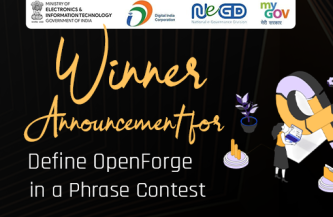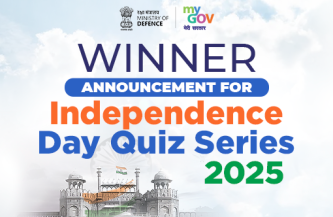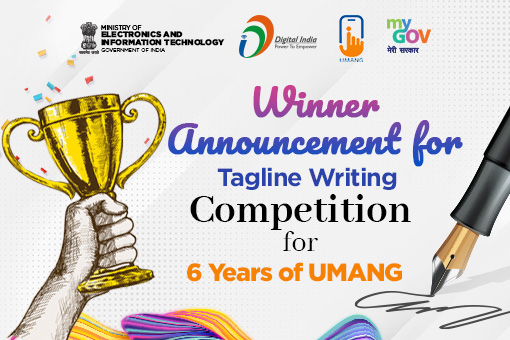The Vajpayee Doctrine of Good Governance

People-centric initiatives started during his tenure as PM became milestones in India’s transformational journey and continue to inspire the nation.
Good governance or Sushasan is an inheritance from India’s ancient culture and ethos. The democratic values retrieved through the Gan Sangha of Buddhism, Anubhav Mantap of 11th century established by Lord Basveshwar, Chanakya’s Arthashastra, civic planning during the Indus Valley civilisation, the legacy of Mauryan emperor, Ashoka, among others, are inherited wisdom that enable better governance. On the occasion of Good Governance Day, which marks the birth anniversary of former Prime Minister Atal Bihari Vajpayee, it is imperative to throw light on his remarkable role in institutionalising the excellent governance measures prevailing in independent India.
After Independence, good governance has been a focal point of governance reforms, but only in discussions. It figured in the Constitution Assembly debates and policy papers prepared by institutions such as the Planning Commission, but the ideas remained on paper with a poor implementation record. Under the visionary leadership of Vajpayee, that changed and efforts to improve governance began to reflect in the lives of the masses.
Vajpayee had a long stint in Parliament — he served 10 terms as a Lok Sabha MP and two terms in the Rajya Sabha. He used this platform to throw light on good governance. As a member of the Opposition, his reasoned argument and constructive criticism carried much gravity and inspired the creation of a welfare-centric governance system. People-centric initiatives that emerged during his tenure as prime minister became milestones in India’s transformational journey. Schemes and ideas such as the Kisan Credit Card, Pradhan Mantri Gram Sadak Yojna, Golden Quadrilateral, interlinking of rivers, the National Rural Health programme, Sarva Shiksha Abhiyan, a separate ministry for tribal affairs touched every section of society. The quasi-judicial Central Electricity Regulatory Commission was set up and the electricity act amended to improve the regulatory framework in the power sector.
The nuclear tests in May 1998 made India a nuclear power. The famous Vajpayee doctrine for resolving the complex Kashmir problem echoed the popular wisdom of “insaniyat, jamhuriyat and Kashmiriyat” (humanity, peace, and the sanctity of Kashmiri people). His famous words, “you can change friends, not neighbours”, continue to guide India’s foreign policy. The Vajpayee government had allowed bringing the bodies of martyrs to their homes to enable people to honour the soldiers who had made the supreme sacrifice for the nation. He was a man of consensus and pragmatism, which enabled the formation of three new states of Chhattisgarh, Uttarakhand and Jharkhand in 2000 in a peaceful manner.
Vajpayee was deeply influenced by the futuristic insights of B R Ambedkar’s thoughts and his role in nation-building. It was at the insistence of Vajpayee and L K Advani that the VP Singh government, supported by the BJP, honoured Ambedkar with the Bharat Ratna on March 31, 1990. Vajpayee’s will to develop 26 Alipore Road, Delhi, where the Maharaja of Sirohi, Rajasthan invited Ambedkar to stay after he resigned from the Union Cabinet in 1951, led to the premises being developed as a museum that would inspire people to aspire for social equality. The Ministry of Urban Development signed the exchange deed of this private property on October 14, 2003, under Vajpayee’s supervision and development works were inaugurated in December 2003. The UPA regime kept the project in abeyance. Later, the Modi government developed it at the cost of Rs 100 crore as the Dr Ambedkar National Memorial and dedicated it to the nation on April 13, 2018.
Vajpayee walked the talk of good governance by undertaking several initiatives at the dawn of the 21st century. PM Modi has increased the speed and scale of these measures to realise his goals. Technological interventions like DBT and JAM have strengthened the people’s confidence in institutions. A big boost to the infrastructure sector has been undertaken through Bharatmala, Sagarmala, National Asset Monetisation Pipeline, agriculture infrastructure fund, etc. The repeal of Article 370 has improved services delivery in Jammu and Kashmir. Recently, the Union Cabinet approved the Ken-Betwa river interlinking project.
The mantra of “Minimum Government, Maximum Governance” has improved the ease of living of citizens. The breaking of governance silos through better coordination among various ministries with initiatives like PM Gatishakti, PRAGATI, capacity building through Mission KarmYogi, focused emphasis on simplifying procedures and reducing the compliance burden on businesses, individuals, and other stakeholders are ensuring better delivery of public services. The implementation of GST, labour codes, Insolvency and Bankruptcy Code, New Education Policy, Mudra, PM Awas Schemes, PM Kisan, and seamless faceless resolution of tax disputes are initiatives that have strengthened transparency, responsiveness and other dimensions of good governance. India’s Ease of Doing Business rank has risen from 145 in 2015 to 63 in 2020. Similarly, the Global Innovation Index ranking has improved from 81 (2015) to 46 (2021).
The prime minister has called for holding simultaneous elections, a single electoral roll, judicial reforms, etc in the best interest of the nation.
Good governance is a means to serve the people, by fulfilling their aspirations within the constitutional framework. Atalji’s vision, leadership, guidance, and invaluable insights will inspire present and future generations. As the nation celebrates Good Governance Day in the backdrop of the Azadi Ka Amrit Mahotsav, let us introspect and pledge to act in the spirit of “Sabka Saath, Sabka Vikas, Sabka Vishwas, Sabka Prayas” for building a New India.
[This column first appeared in the print edition on December 24, 2021 under the title ‘Vajpayee doctrine of Sushasan’. The writer is Arjun Ram Meghwal, Union Minister of State for Culture & Parliamentary Affairs, representing the Bikaner constituency in the Lok Sabha]





